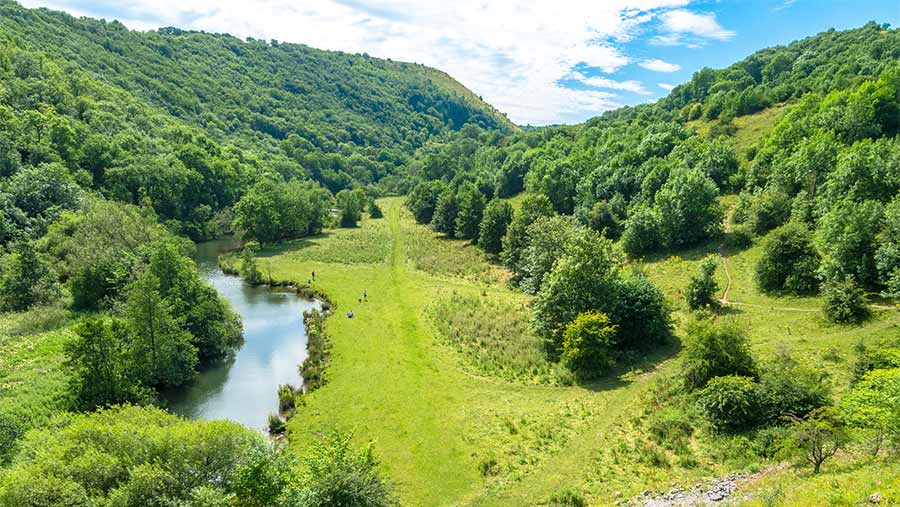Chicken processor Avara moves to help clean up the River Wye
 © Jelana M/Adobe Stock
© Jelana M/Adobe Stock Poultry processor Avara has announced plans to end the spreading of chicken manure from about 75 of its supplying farms within the River Wye Catchment.
This is part of the company’s drive to reduce levels of phosphate entering the river.
In a letter to broiler growers, chief executive Andy Dawkins explains that agreement has been struck with Gamber Poultry Litter – a specialist litter trading company based in Herefordshire – to find alternative destinations for their litter.
See also: New ‘roadmap’ from poultry processor to clean up River Wye
Affected producers will be required to sell their litter direct to Gamber.
This will then provide full traceability for where that litter is used – be it in anaerobic digestion plants or litter burners within the area, or for spreading on land elsewhere in the country.
The exception will be the 25-30 Avara farmers in the Wye Catchment who also have arable land on which to spread their own litter.
These farmers will instead be part of a pilot group, trialling a new Red Tractor assurance standard, to ensure best practice and minimise any contamination of waterways with phosphorous.
“The continued deterioration of the Wye has been well reported and, while the root causes are many and complex, the role of phosphate from poultry litter in particular has been the focal point of many campaigns,” said Mr Dawkins in his letter.
“As the largest poultry business in the region (with just over 100 supplying farms), the onus is on us to manage our supply chain, set an example for others, and to use what influence we have to support change elsewhere in the catchment.”
Response
The move has received a “cautious welcome” from environmental campaigners.
“It sounds like a good development, though we are concerned there are no fixed dates,” said Nick Day, co-founder of Friends of the Lower Wye.
“It is essential that this happens as soon as possible. Every week of delay is equivalent to another 3,000t of chicken manure spread on the ground in the Wye Catchment.”
Mr Day added that, despite claims by Avara that its poultry farms had just a “limited impact”, poultry litter was the primary source of phosphates into the River Wye, which caused damaging algal blooms.
“Other intensive livestock farms also play a part, as do sewerage treatment plants, but agriculture is still 70% of the problem,” he said. “I hope Avara’s lead will shame other sectors into doing something too.”
Webinars
Broiler growers were first advised of the new arrangement in an Avara webinar on Thursday (10 August). Their reaction is said to have been “broadly understanding”.
“They are in the same boat as us,” said an Avara spokesman. “They have seen the same headlines and realise that it is their reputations on the line.”
The new approach to litter disposal fulfils one of the key actions outlined in Avara’s River Wye “road map”, published in January 2023.
Other actions have included detailed mapping of manure and phosphate volumes in the catchment, and reducing the phosphate content of poultry feed.
